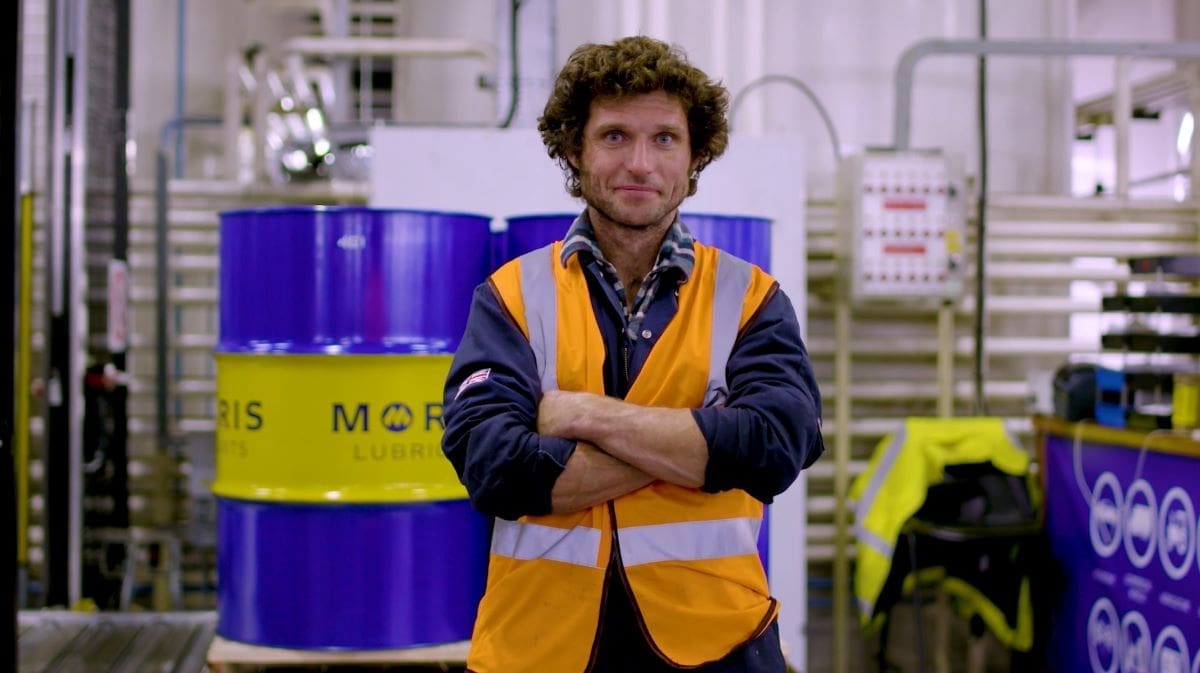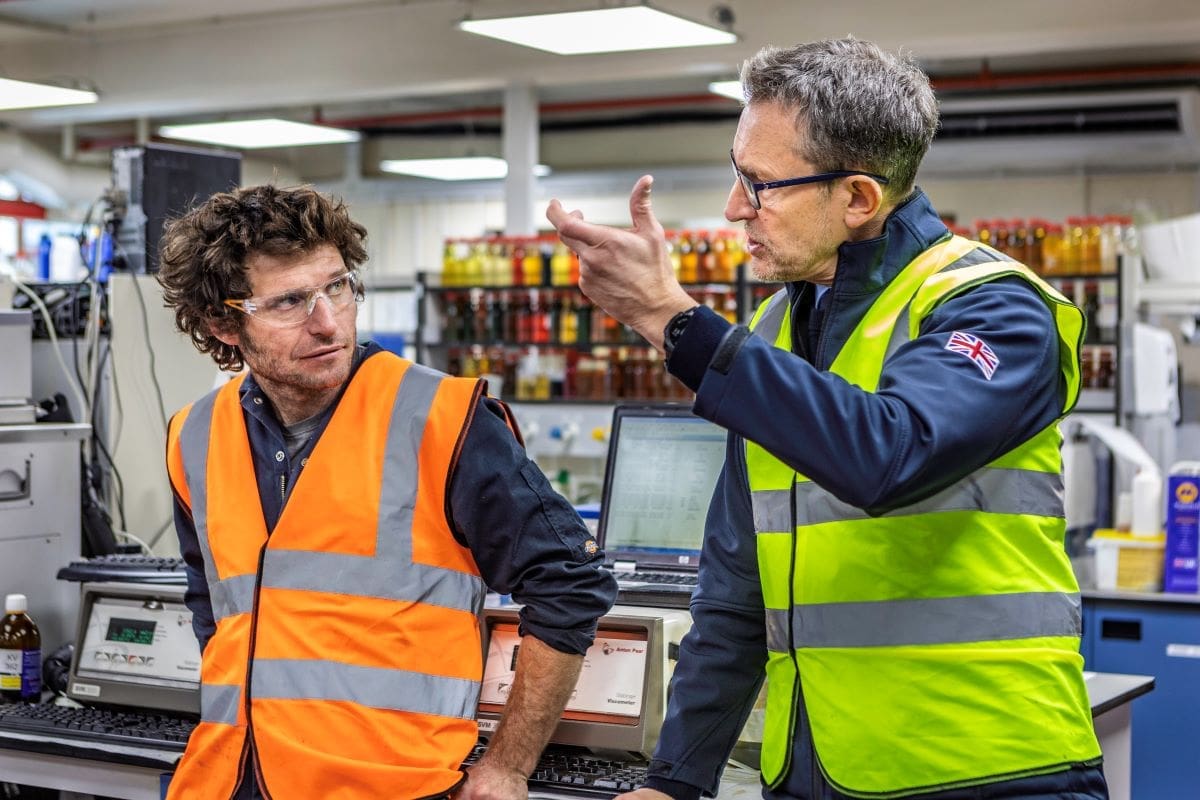Morris Lubricants have released a new video series starring Guy Martin – designed to provide end users and distributors in the motorcycle trade with an insight into how oil is made and the factors that should be considered when choosing a lubricant supplier.

The series of five short videos demonstrates the key areas that should be considered when selecting oils and lubricants, to ensure maximum equipment life and reduced production downtime.
The videos feature Guy Martin, lorry mechanic, motorbike racer, TV presenter, engineering enthusiast and Morris Lubricants’ ambassador who is taken through the production process by the company’s Technology Manager Adrian Hill. He demonstrates the key areas that should be considered when selecting oils and lubricants, to ensure maximum reliability of components in engines and gearboxes.
A heavy goods vehicle mechanic by trade, Guy was eager to discover each stage of the manufacturing process and how oil is formulated to keep mechanical systems lubricated even in the toughest conditions.
“After spending time at the factory in Shrewsbury, I now appreciate the science and skill that goes into the oil production process,” said Guy. “I didn’t realise the company produced so many different varieties of oil and lubricants.
“It blew my mind when Adrian said that Morris Lubricants ships 12 containers of oil a week to countries as far away as New Zealand, Iraq and China and how much trust their international customers have in the product being made in Britain.”
Adrian added: “Guy was genuinely interested in the process, spontaneous with his comments and amazed by what goes on behind the scenes,” he said.
“He was excited by the prospect of trying something new and enjoyed filling a few barrels, capping them and putting the Morris Lubricants seals in place.
The process
The video explains that the oil blending process is strictly monitored, beginning with the raw materials, which includes base oils and additive chemistry being delivered into the Shrewsbury manufacturing facility.
A stringent quality assurance process is then followed. All the base oil and additives delivered to the company are quarantined, sampled and sent to the on-site quality control (QC) laboratory where they are subjected to a suite of tests to ensure they are suitable for use. The Morris Lubricants’ QC laboratory currently conducts more than 5,000 quality control tests a month.
Once approved, these materials are released for production and are then carefully blended together, in compliance with strict formulation guidelines, to produce the finished high quality lubricant.
Each oil product is specially formulated to meet the needs of individual applications alongside strict global and original equipment manufacturers’ (OEM) specifications.
The blended lubricant is then sampled, sent to the QC laboratory and subjected to a series of chemical and physical tests. This ensures the formulation has been followed exactly.
When approved by the QC laboratory, the sample is released for filling. Once again, before filling begins, a final sample is taken from the filling head and checked a final time to ensure compliance.
The approved lubricant can then be filled into the appropriately labelled and batch numbered package. The pack sizes filled with lubricant ranges from 1 litre bottles, 5 litre contours and 25 litre drums to 205 litre barrels as well as bulk containers. This process ensures full traceability of the quality of the finished product.
The finished product is palletised, stored and then shipped out to customers in the UK or overseas. 44 million litres of product leave the company’s two manufacturing sites per annum, with 12 shipping containers leaving Shrewsbury every week to supply quality products to customers all around the world.

About the episodes
The video series starts with Episode one and highlights the arrival of various high quality raw materials coming from the numerous suppliers based all around the world.
Episode two covers the processes that are conducted in the QC laboratory which conducts more than 5,000 tests a month.
Episode three explains the computer-controlled blending process and an eco-friendly ultrasonic technique which has cut blending time from 60 to 10 minutes. The company has the versatility to blend volumes from 200 to 70,000 litres.
Episode four takes viewers to the filling lines where various packaging formats are available to satisfy a diverse range of customers.
Episode five focuses on storing and shipping products which each have tamper-proof seals. The company ships oil and lubricants around the globe with 12 containers leaving Shrewsbury every week.
The video series has been launched on Morris Lubricants website and Facebook and can be viewed at https://bit.ly/MorrisOil




